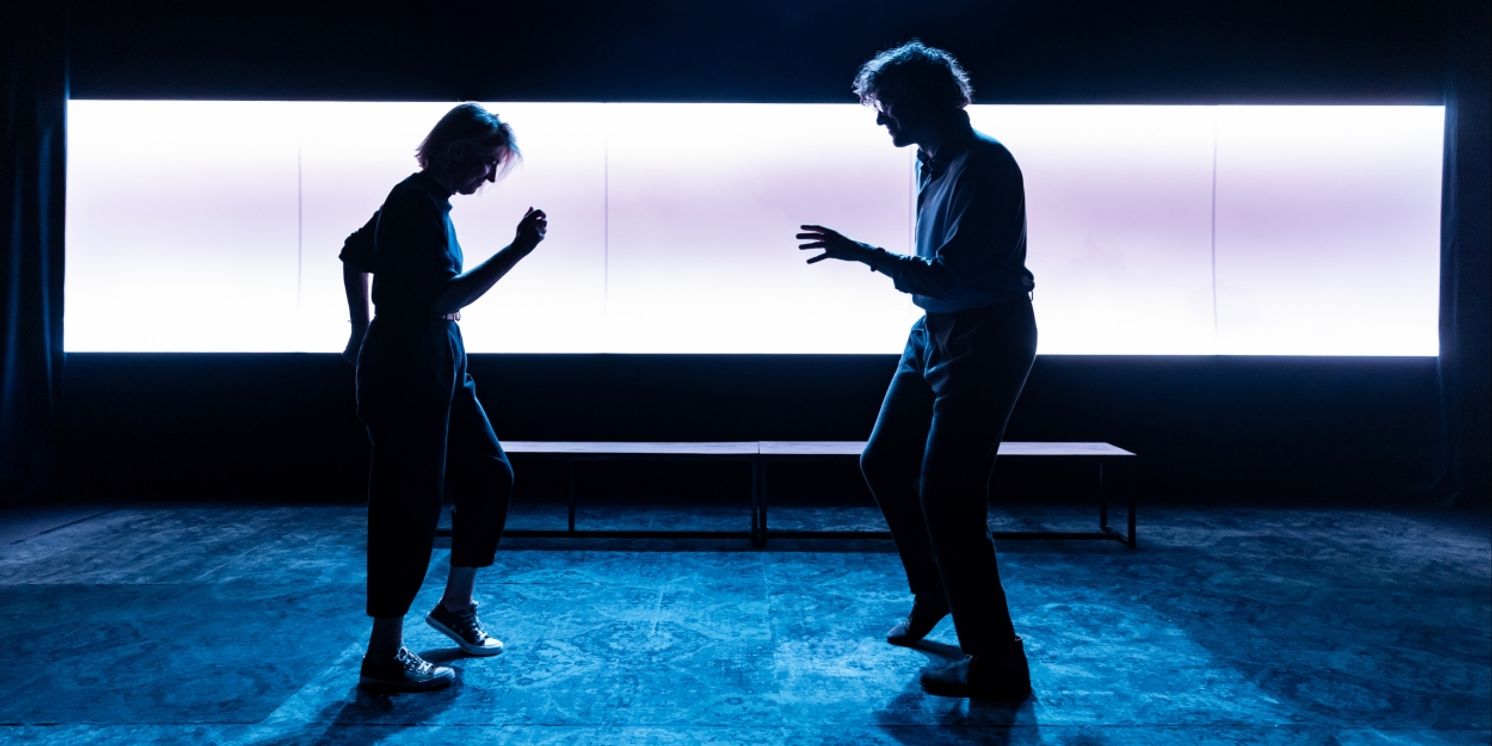Review: OCTOPOLIS, Hampstead Theatre
A curious new play from Marek Horn

![]() Above all else, Octopolis is interesting. It can be funny, touching, and surprising, but fascination, here, is the priority.
Above all else, Octopolis is interesting. It can be funny, touching, and surprising, but fascination, here, is the priority.
As its unusual title suggests, Octopolis has an octopus at its centre. Reclusive academic George Grey has an aquarium tank in her living room; she shares the space with Frances, an octopus that she considered a third member in her marriage with her late husband. George’s now solitary life is disturbed when neurotic professor Harry comes to live with her. Their relationships with each other and with Frances lead them to revelations in both their studies and their personal lives.
Octopolis is an intimate two-hander that initially feels small-scale but reveals itself to be about vastly expansive ideas - essentially about the very concept of humanity. Marek Horn’s writing is probing and incisive, shifting from extended paragraphs of anthropological theory to funny innuendo and dramatic arguments. His two characters shift between speaking to each other and breaking the fourth wall.
Clearly a huge amount of thought and research has gone into this script - it’s the kind of show you watch with a permanently furrowed brow. Nonetheless, for the most part Horn manages to express very complex ideas, both academic and interpersonal, with a surprising lucidity. The writing especially shines in the moments of unexpected comedy - it can sometimes be a little too clever for its own good, so the moments of simplicity really stand out.
Horn’s longtime collaborator Ed Madden (Yellowfin) directs the piece with an intellectual creativity, turning a very on-the-page script into something living and breathing. Directing Octopolis must have been no easy task - as a text it’s fairly dense, requiring several different levels of understanding. There are perhaps some errors - it’s slightly disorienting when characters refer to items in the same room as being in different places within the same scene, and this happens a lot with Frances’ tank. In making it human and engaging to watch, though, Madden has already done a very impressive job.
The script of Octopolis specifies that dialogue set in ‘The Past’ is not embodied, while sections in ‘A Future’ are embodied to a point beyond words. This explains a lot of the seemingly curious staging choices in this play: in a show so focussed on the contents of a home and its three inhabitants, the set is sparse and no props are used. For the most part this is effective, although at times when real-time movement does creep in we are left to question why some scenes are enacted and others are not.
These scenes are interspersed with dance sequences to David Bowie, which initially seem anomalous to the rest of the play but eventually reveal themselves to be part of its core. Even without their meaning, they play a valuable role in livening up the pace and adding in some lighthearted fun when everything gets a bit serious.
Jemma Redgrave (George) and Ewan Miller (Harry) both give considered, detailed performances, deftly managing complex, weighty dialogue. They both transform difficult characters into people we root for, and excel in making their unconventional relationship interesting to watch unfold.
There is, of course, the question of how to stage the octopus (not a sentence I think I’ll ever type again). In this production, designer Anisha Fields and lighting designer Jamie Platt create a wide screen that represents Frances and her tank, changing colour as the octopus does so. It’s a stylish choice, and creates some stunning moments - particularly excellent are moments when we see the actors reflected in the tank, making them the subjects of their study. I look forward to seeing how future revevials or amateur performances go about staging the unstageable.
Octopolis fits perfectly into the programme of work the Hampstead Downstairs tends to present - all of their new writing plays feel anthropological, rooted in something factual, be it history or science. It’s rare to see a theatre with such a distinctive identity, but also something that perhaps prevents more vibrant new writing from accessing the space.
This is an intricately intellectual piece of theatre, diving headfirst into questions of sentience, religion, grief, and community from a uniquely smart writer. The extent to which intelligence is prioritised in Octopolis, however, leaves it feeling somewhat inaccessible as a piece of theatre - while it’s very much enjoyable, it’s the kind of show that embodies what many people dislike about contemporary straight plays. Rather than being a piece of entertainment, it’s an exercise in thought.
There’s so much at work under the surface that you could watch or read Octopolis several times over and continue to notice something new. It often feels more like a live academic article than it does a play. But if you go to the theatre to think, to learn something, to do some introspection, it’s unmissable.
Octopolis runs at Hampstead Theatre (Downstairs) until 28 October
Photo Credit: The Other Richard
Reader Reviews
Videos

